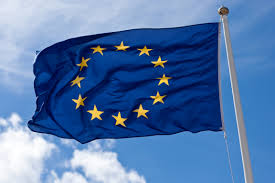EU faces test of togetherness
 The European Union this week faces one its most important tests of solidarity; and it’s nothing to do with Greece defaulting on its debts.
The European Union this week faces one its most important tests of solidarity; and it’s nothing to do with Greece defaulting on its debts.
A summit of EU leaders on June 25th – 26th will discuss the continent’s burgeoning refugee issue.
Last month, more than 800 migrants drowned in the Mediterranean, prompting the European Commission to issue proposals to deal with the crisis.
At their heart were two controversial suggestions: first, the relocation of 40,000 Eritrean and Syrian asylum seekers arriving in Italy and Greece, which have been flooded with arrivals, across other EU countries; and second, the resettlement inside the EU of 20,000 refugees now outside its borders.
Under both plans a “distribution key” allocates precise quotas of people to EU countries, taking into account population, GDP, unemployment and previous resettlement efforts. Crucially, the commission wants the relocation plan to be mandatory but according to EU law, the resettlement proposal must be voluntary.
The numbers are small compared with the volume of people reaching European shores. More than 100,000 have made the Mediterranean crossing this year alone, according to the International Organisation for Migration.
Millions more refugees languish in Turkey, Jordan and Lebanon. But their political impact is huge, particularly in countries with little experience of asylum seekers .
Germany, Sweden, France Greece, and Italy are among those backing the initiative but it is far from being politically palatable across the entire EU and particularly among EU members from the former eastern bloc.
Estonia’s ambassador to the EU Matti Maasikas says the row over relocation is the biggest EU-related debate in his country since it joined the club in 2004.
Estonia, which would have to accept just 738 asylum seekers under the plan, is among several central and east European countries with reservations about an obligatory relocation scheme. It is largely thanks to their opposition that the commission’s plan, which needs majority approval, is at risk of falling over.
And, even if agreements are reached, no one seriously thinks the relocation work itself can begin until September at the earliest, which means that the Italians and Greeks will have to cope with the busy summer months alone.
Also, Poland, and its Visegard partners – the Czech Republic, Slovakia and Hungary – and Spain will form a joint front against the European Commission’s plan to impose a quota on asylum seekers entering Europe, PM Ewa Kopacz said this week.
Britain is also a problematic player in this debate. With David Cameron’s newly returned Conservative government receiving a mandate to reduce normal migration levels, it is hard to imagine the UK signing up to take more asylum seekers.
But with the UK’s High Court ruling unlawful a process of detaining asylum seekers in order to fast-track them towards a review – and with human rights groups calling this a victory against the “unfair” treatment of many asylum seekers – who knows how this side-show skirmish will play out.
EU officials say that the relocation and resettlement proposals are part of a larger package, including an effort to intercept smugglers’ vessels. Mercifully, another element, the expansion of naval search-and-rescue operations, seems to be working: last weekend over 5,700 would-be migrants were rescued at sea and taken to Italy.
But they must all be processed, increasing the burden on the Italians and Greeks. Perversely, the absence of migrant tragedies from the headlines could also reduce pressure on governments to act.
One senior official was reported as saying it is harder to get “shows of leadership” when memories of emergencies fade.
The proposal is a huge gamble, and an unusually aggressive move for a commission that dislikes picking battles.
This almost certainly reflects the frustration of Jean-Claude Juncker, the Commission’s president, with the “voluntary solidarity” failures of the past.
Previous tragedies have generated ambitious words but little action—or worse, calls to restore frontier controls between EU countries.
But as sceptical diplomats point out, telling countries that they must accept certain numbers of migrants rubs up against the strongest tenets of national sovereignty.
But this stand-off over solidarity has few interesting layers of complexity. A Euro-zone country like Germany is trying to leverage the multi-billion-euro bailouts it has provided saying these are an example of unflinching solidarity. And the Mediterranean countries who have shown solidarity with their eastern partners over sanction against an aggressive Russia say they are owed some consideration on the issue of asylum seekers.
Underpinning all this are the dreadful human tragedies that are being played out on the waters of the Mediterranean.
But, like charity, it seems, solidarity begins at home.
Laurie Nowell
AMES Senior Journalist












